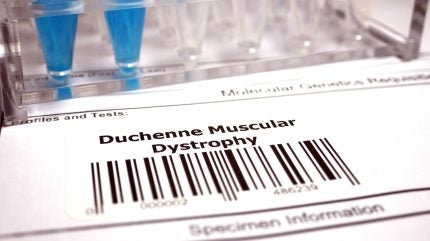

Regenex Bio has announced it is meeting with the US Food and Drug Administration (FDA) with plans to initiate a pivotal trial of its Duchenne muscular dystrophy (DMD) gene therapy candidate before the end of this year.
The US-based biotech is looking to investigate its gene therapy candidate RGX-202 in a Phase III trial in DMD patients.

Discover B2B Marketing That Performs
Combine business intelligence and editorial excellence to reach engaged professionals across 36 leading media platforms.
The update comes just one day after Pfizer paused dosing in its DMD programme following the fatality of a young boy from the Phase II DAYLIGHT study.
Regenex Bio’s end of Phase II meeting with the FDA is due to take place in early Q3 2024 with hopes to initiate the pivotal trial by the end of Q3 or early Q4 2024. The Phase II dose level two from the Affinity Duchenne trial (NCT05693142) has been selected as the pivotal dose to use in Phase III.
Regenex Bio CEO Kenneth Mills said: “We expect to make significant progress across our prioritised pipeline, including advancing our Duchenne programme into a pivotal stage. Regardless of today’s landscape of Duchenne treatments, communication from the FDA continues to support the need for alternative gene therapies for rare diseases, including Duchenne.”
Regenex has also announced data from the second patient from the Phase II Affinity Duchenne trial. The boy, approximately eight years old, received RGX-202 at the pivotal dose. RGX-202 microdystrophin expression, a biomarker developed by Regenex Bio, was 20.9% compared to control at three months. A reduction from baseline in serum creatinine kinase (CK) levels of 90% was reported at ten weeks.

US Tariffs are shifting - will you react or anticipate?
Don’t let policy changes catch you off guard. Stay proactive with real-time data and expert analysis.
By GlobalDataRGX-202 continues to be well tolerated in all patients with no serious adverse events.
The company has dosed boys three and four as part of the Phase II trial expansion phase, with plans to enrol a total of seven patients on the pivotal dose by the end of Q3 2024.
Initial strength and functional assessment data for both dose levels of the AFFINITY DUCHENNE trial is expected in the second half of 2024.
RGX-202 has received orphan drug, rare pediatric disease, and fast track designations from the FDA.
RGX-202 is a potential one-time adeno-associated virus serotype 8 (AAV8) therapeutic for the treatment of DMD. The candidate is designed to encode a novel microdystrophin transgene that protects muscle cells from damage and preserves muscle function.
The candidate is also being investigated in diabetic retinopathy with the hope of initiating a pivotal trial in H1 2025.
DMD landscape
DMD is a rare muscle-wasting fatal disorder associated with mutations on the X chromosome that affects predominantly boys with diagnoses typically occurring around two to five years of age.
DMD patients can lose the ability to walk as early as age ten followed by loss of the use of their arms and subsequently experience life-threatening heart and lung complications in their late teens and 20s.
According to a report by GlobalData, a total of 390 Duchenne muscular dystrophy clinical trials were conducted as of January 2024.
Last year, Sarepta Therapeutics received FDA approval for its DMD gene therapy Elevidys (delandistrogene moxeparvovec-rokl) for the treatment of ambulatory paediatric patients aged four and five years with a confirmed mutation in the DMD gene.
Cell & Gene therapy coverage on Clinical Trials Arena is supported by Cytiva.
Editorial content is independently produced and follows the highest standards of journalistic integrity. Topic sponsors are not involved in the creation of editorial content.





